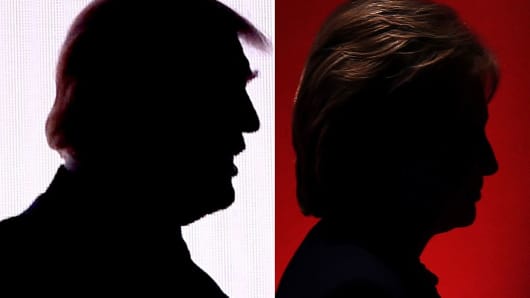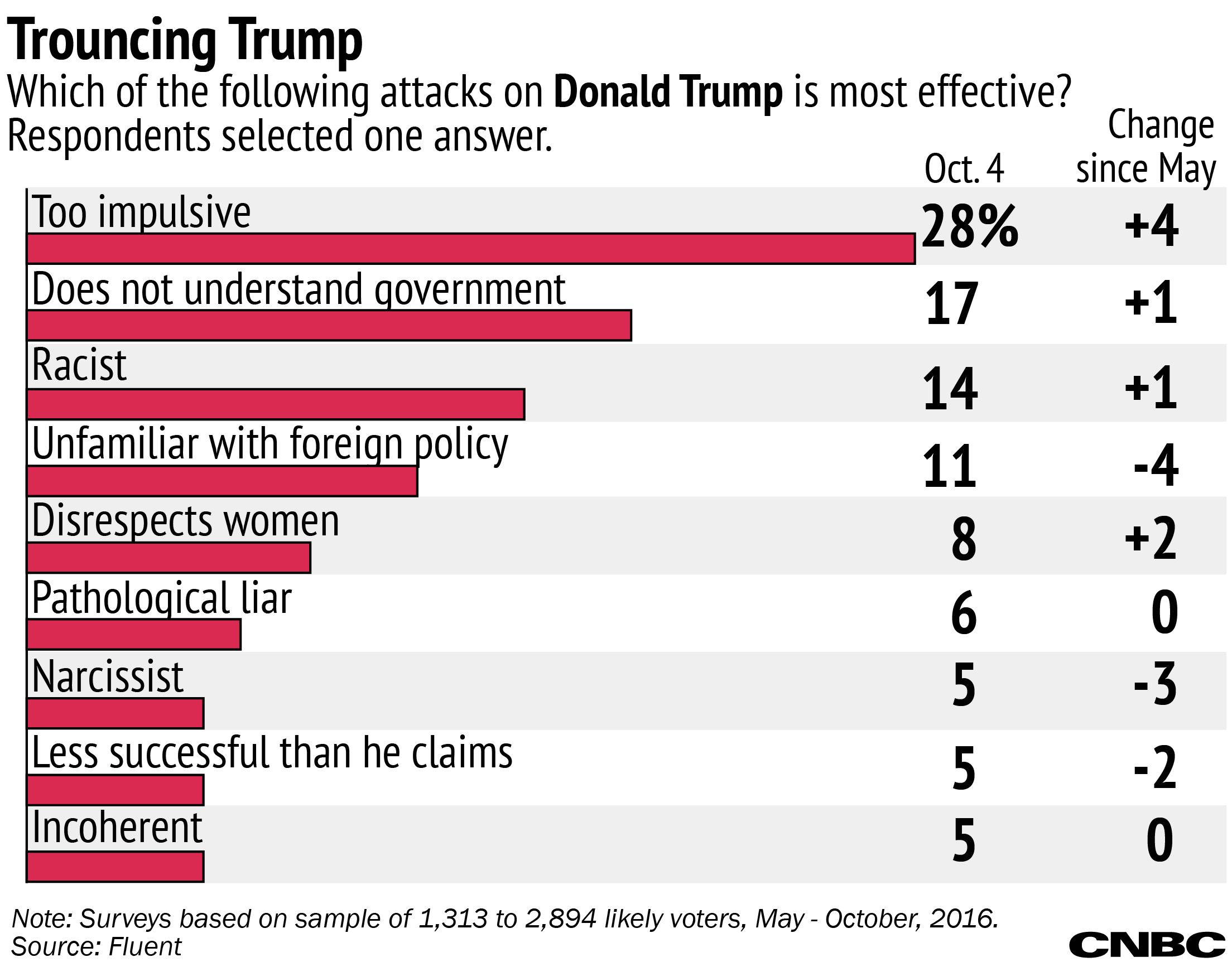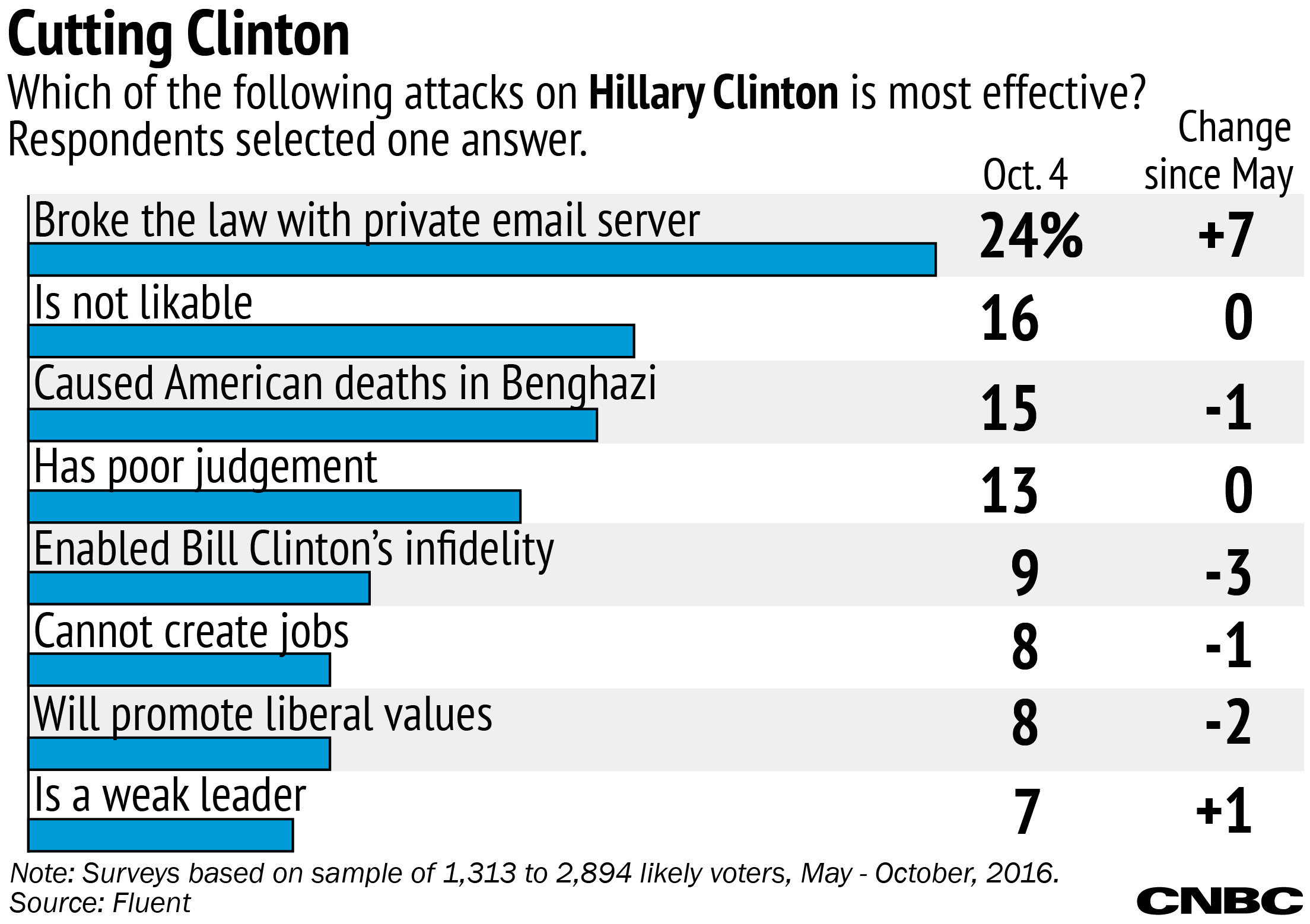Presidential candidates Hillary Clinton and Donald Trump face off Sunday in the second of three debates before the November election.
We've often heard that Clinton has poor judgement and Trump doesn't respect women very much (a perception not helped by Friday's revelations about his 2005 remarks), and that's likely to continue.
But the thing is, the candidates aren't really convincing anyone with their attacks. Most of the voters have already made up their mind and no matter how hard the candidates hammer away at their talking points, voters don't find the lines of attack any more effective.
That's according to a six-month running survey from marketing firm Fluent. Every week since May, they've been checking in with likely voters for the best reason to support their candidate of choice, and what lines of attack they find most effective against their opponent. The aggregate results could give a modest sense of what's important to voters, and what zingers candidates may use Sunday night in their effort to draw in the few remaining "undecideds."
The top lines of attack aren't that surprising. They're what we've heard again and again for months: For Clinton, it's her use of a private email server while she served as secretary of state, American deaths in Benghazi and that she's "not likable."
For Trump, his people see his impulsive behavior as a liability in such a powerful office; he doesn't understand government and that he's racist.





